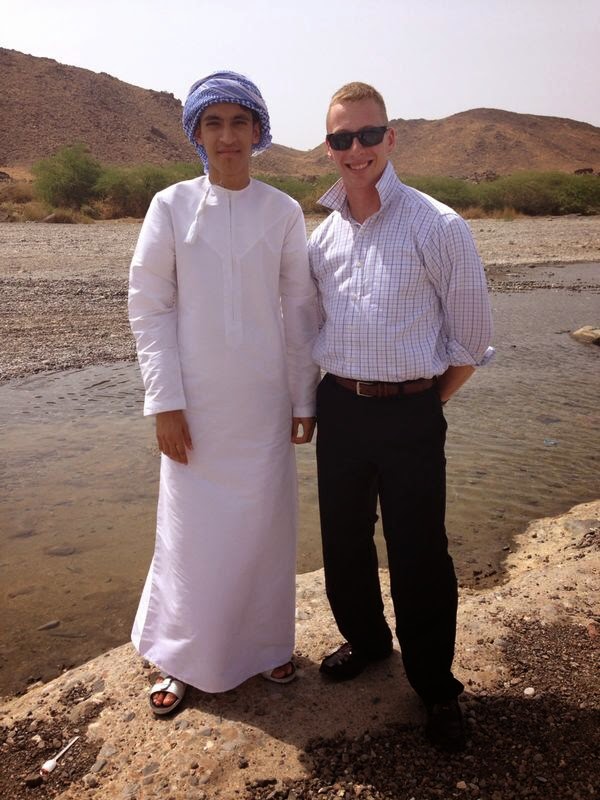There are seriously so many strange things about the Middle East. This is not really an experience most will understand, because it is genuinely so unfathomable when you are not actually experiencing it. That being said there have been so many times here where I've embraced this strange new culture. However, there have been a few times where I just can't get used to something... Perhaps this is due to being raised in the "western world" and not the "eastern world", or perhaps I'm more high maintenance than I thought. The cultural differences I see here are vast, but not unwelcoming. It just takes a bit of getting used to. I'm not going to lie, I love a lot of things about the Middle East, but after spending two months in the Middle East, here are a few things that don't sit well with me:
1. Meat
We eat rice and meat for every meal. Every. Day. And that's typically okay. But my privileged little self has been so blessed to have boneless, fatless, clean meat in my life everyday. When you see little teeny ribs and tough skin on the little teeny chicken they give you, you just can't help but to feel bad for the poor hen. Also... your options are chicken or meat. The "meat" option could be mutton, lamb, beef, goat... you're never quite sure, even sometimes after you eat it. I also feel really bad when I go to the market and see these poor cows and goats getting ready for slaughter... that's still a common thing here.
My mom was always pretty cool about fast food growing up. It was seen as a treat of convenience, especially when traveling, or sometimes a reward for being good while running errands with her. It was neither forbidden nor to prevalent in my young life. I can honestly say I've eaten more American fast food here than I ever have in America. "Dzajaj Kentucky" (KFC), "Makduunaldz" (McDonalds), and "Hardiz" (Hardee's) are all super popular here. Out of convenience, it's almost necessary to eat this food... one's body can only take so much Pakistani/Indian/Turkish without consequence. Fresh, healthy food is so expensive here!! On a college budget I can't even afford certain fruits and vegetables.
There is no such thing as a metered cab in the Sultanate of Oman. You must barter for each cab you take, and though they are much less expensive than cabs in the states, it is nearly impossible to get a fair price as a foreigner. Also, you have to find a cab driver who knows exactly where you want to go, or you have to know exactly how to get there, because you can't give him an address. The issue is mostly overpaying. If you are Omani, you can get a 100 km ride for about $1.00. If you are a foreigner, you can get a 100 km ride for about $13. It's ridiculous.
Squat toilets are the worst. My high maintenance lifestyle does not prefer to squat in the bathroom and subsequently wash my pee down the toilet with a bucket of water. Nor do I prefer a lifestyle where a "shitaf", also known as a high powered hose, is what I use to clean myself after going to the bathroom (the trick is that you have to wipe with your hand). I just don't think you'll ever convince me that western toilets aren't better. I also don't like the smell that lingers in an eastern squat toilet.
The only streets that have known names here are the highways and major roads, so if you're looking around in a neighborhood or if you're trying to explain to someone where to take you, it's nearly impossible. If you want to get anywhere, you have to know landmarks, like "the mosque on the left by the house with the green door, past the chicken coops, two roundabouts after the KFC". The. Worst.
6. Only dads have the final say in things
Omani girls cannot do anything without the permission of their father or, if they're married, husband. Oh the Kate inside me has so much trouble keeping her mouth shut, but Kate on the outside just smiles and nods. (To be honest, it works pretty much the opposite way in our house... sorry Dad!)
7. Being Blonde
Just trust me. Blondes don't have more fun here.
8. Speed bumps
There are speed bumps everywhere here. And I mean everywhere. You will find speed bumps on every single road except the highway. Why? Good question. But they aren't even just normal speedbumps. They're these mega steep death traps and you'll scrape against them 80% of the time unless you slow to about 1 k/hr. They're the worst. Oh, and when the cab drivers don't see them and go over them at 100 k/hr, they scream a stream of English profanities...? (I'll never understand it)
I appreciate this experience very much, but I've never been one to sugar coat. Assimilating to this culture has been very difficult at times, and there are times when it's impossible not to get frustrated. There are times when I want to give a one finger salute to the people who stare too long, or tell off a cab driver who overcharges us. There were times in Ramadan where I wanted to yell and scream that it wasn't fair that a non-Muslim is bound by law not to drink water in public. And there have been WAY too many times I've almost died in a taxi.
New places are hard to adjust to... but boy wouldn't it be a shame if we never got to experience that at all?





















































